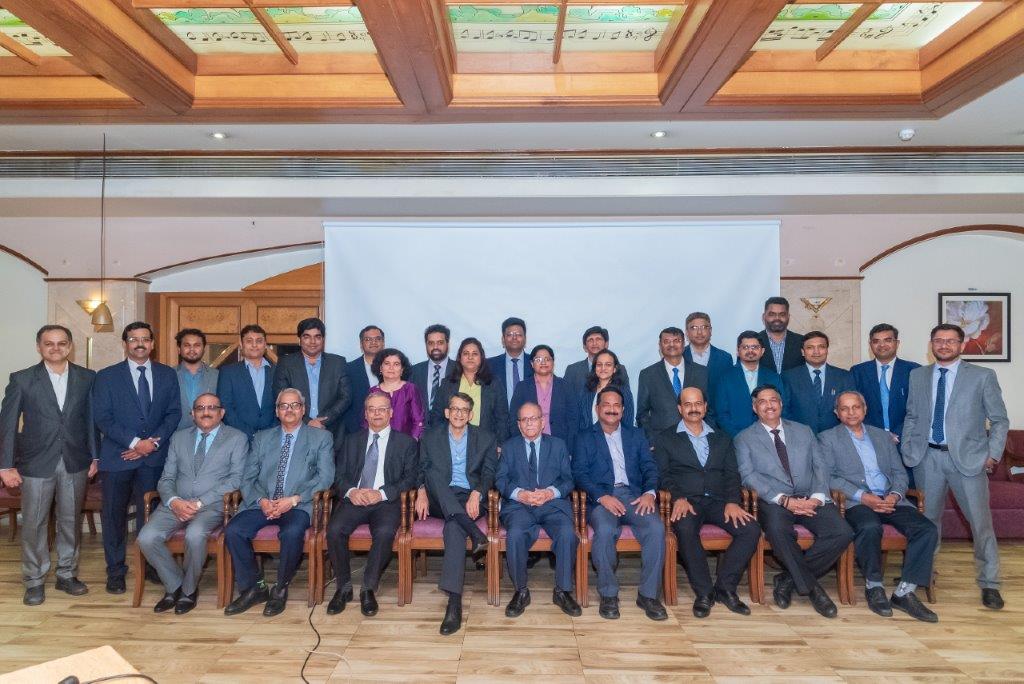- Hi, I am Milind Limaye. I set up my CA Practice in the late 1990s, but times were tough and my partner decided to move overseas.
- But guess what? In 2004, Mr. Ravi Pandit, the senior-most partner at Kirtane & Pandit approached me to join the firm as a partner. I took the opportunity.
- Fast forward to today, and we have grown at least 50 times, with 900 team members and over 30 partners. This success was not a result of mere luck, but rather meticulous strategic planning.
- Here is how we did it.
Backstory: 7 decades of Kirtane & Pandit
Today Kirtane & Pandit is a leading firm in India with a workforce of almost 900 and its presence in 11 cities.
The growth of the firm can be divided into four phases.
Phase 1
- 1950s: In 1956, Kirtane & Pandit started as a Pune-based firm when there was limited activity in the country. Consequently, their growth was relatively slow during this period.
- 1960-1970: Kirtane & Pandit’s success took off in the ‘60s, witnessing exponential growth over a decade.
- 1980s: When in the late ’70s or early ’80s, our senior-most partner, CA Ravi Pandit, an MBA from MIT took over the reins from his father, he changed the style of the practice. He brought in fresh ideas and visions that led the firm to a new growth level.
Phase 2
1990s: The Indian economy opened up in 1991 which marked the firm’s second growth phase.
While traditional practices still thrived at Kirtane & Pandit, we also ventured into diverse offerings, exploring new ways to differentiate ourselves.
Our IT division evolved into KPIT Technologies, which has grown not just multifold but a millionfold.
Additionally, we expanded our ventures to include ESOP Consulting. KP-ESOP was one of the first ESOP consulting firms to have been set up in the country.
Phase 3
- 2000: From 2002 onward, we embarked on our third growth phase. This was a pivotal moment for us to reflect, and elevate our practice once again.
- 2005: On 1st April 2005, Value Added Tax (VAT) became effective in India. We recognized it as the perfect opportunity to expand into the realm of indirect tax.
- 2006: We established our Indirect Tax division, initially focusing on VAT audits for our existing clients. Over time, we recruited managers with the necessary expertise, and one eventually ascended to the position of Partner in charge of that division.
Phase 4: Years of exponential growth
2011-2015
- In 2013, the new Companies Act was introduced in India. This led to the emergence of IFRS and IndAs implementation and the introduction of Internal Financial Control (IFC) and Internal Control over Financial Reporting (ICFR).
- These statutory changes created numerous opportunities for Kirtane & Pandit in various consulting sectors.
- Between 2011 to 2015, the compounding effect began and we have maintained its momentum to this day.
2017: GST was introduced in India and with that our Indirect Tax Practice took a different direction once again.
2020s: In 2023, Kirtane & Pandit strategically joined forces with three prominent CA firms, namely R U Kamath & Co. in Mumbai, PGSJ & Co. in New Delhi, and Purandare & Narwadkar in Pune.
These mergers will significantly enhance Kirtane & Pandit’s standing within India’s accounting and auditing industry.

Our exact growth strategy
Over the years Kirtane & Pandit have experienced a remarkable 50-fold increase. Additionally, we have expanded our operations to five additional locations besides Pune and Mumbai.
Here is how we achieved it…
Be a one-stop shop
Some CA firms tend to specialize in a specific area of expertise and aim to expand solely within those domains.
While there is nothing wrong with this approach, we decided to differentiate ourselves by providing a comprehensive range of professional services.
We offer a range of services including traditional direct tax, statutory audits for corporates, internal audits, BFSI-related consulting, and business process improvement.
Hire experts
At Kirtane & Pandit, each partner concentrates on a specific function. This means that while every partner should have a broad understanding of all functions, they should excel in one particular area.
There are a minimum of five to six partners assigned to each segment.
Offer something unique
With numerous CA firms present in India, we decided to provide unique solutions to our clients. This has massively contributed to our growth over the years.
Be ethical
Kirtane & Pandit is renowned for its honest and ethical practices, which I am very proud of.
It may take some time for you to experience growth with this approach but it will be sustained for a long period, otherwise, any progress you make will be short-lived.
Strategic mergers
To expand our firm’s headcount to 5,000 members, we must acquire firms that share our vision. This strategic move will enable us to extend our presence to various cities across the country.
2024…the year of disruption
2023 rocked, and 2024 is set to be even better! India has arrived and we are in the right place at the right time.
Specialize in what’s hot with new tech
- Young CA Firms are nailing the adaptability game—unlike us older folks.
- Be ready for AI or whatever is happening. If the clients are maturing you need to mature in your profession.
Global reach with local strength is important
- Look out for other countries as potential clientele, rather than sitting only in India.
- Yes, we sit in India, but half of our partners, are travelling across the globe for one or the other assignment.
Focus on SMEs as you can participate in so many activities including planning and helping them grow, which helps you finally settle yourself to be a successful practitioner.
Stop worrying about competition
- Instead of lamenting about the competition or feeling overwhelmed let’s channel our energy into striving for that Big 4 level.
- Growth is still within our reach, and with dedication, we can make it happen.
Be an Analytics not only numbers guy!
- Chartered Accountants are always construed to be very good at numbers, but basically, we should be very good at analytics.
Generic practice won’t help you in scaling your firm that much.
- Over a while, you must have a specialized area of practice.
- Instead of engaging in a wide range of tasks, such as direct tax, indirect tax, bank audits, and certain company audits, I specialize in internal audit or risk management.
- While I possess knowledge in other areas, I do not actively practice or specialize in them.
The question, “What can we do differently for our clients?” has helped us grow over all these years.
Don’t stress about the journey; today Kirtane & Pandit is a leading firm in India but it took us 67 years!
Focus, be unique, and success will find you. Take a breather, get creative, and let 2024 redefine your wins!







